HAMTRAMCK — The countdown to the general election is one week away and six City Council candidates are in the running for three open seats on the Nov. 2 ballot.
The Arab American News reached out to all of the candidates to provide the community of Hamtramck more insight into individual City Council hopefuls and their responses to two urgent matters that impact residents.
All six candidates were given the same questions and two weeks to respond. Each response was given a 75 word limit per person.
Full candidate profiles can be found by searching the candidates’ names on The Arab American News website.
Question one: Briefly tell me about yourself, including your background and work experience.
Question two: One of Hamtramck’s biggest financial challenges is the city’s obligation to pay the fire and police pension funds settled on 10.5 mills. If left unpaid, the city has been warned of facing a lawsuit resulting in a court order to enact a tax lien on residents for a larger amount. If elected to City Council, what funding solutions would you propose to resolve this budget issue? Be specific.
Question three: Hamtramck, like much of Southeastern Michigan, is still reeling from the impact of the devastating floods in June and others after. What is the City Council’s responsibility in providing ongoing assistance to Hamtramck residents during this crisis and other flooding problems in the future?
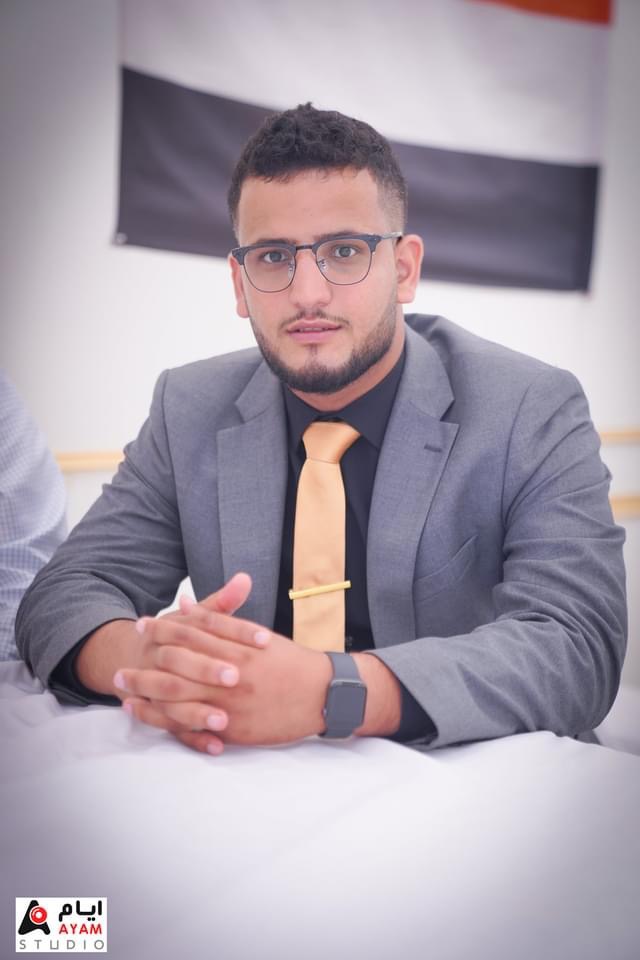
Adam Albarmaki
Adam Albarmaki A1: As an immigrant, I came to this country with little to my name. Through the opportunities available to me, I was able to work towards my goals of becoming an engineer. Along the way, I faced many challenges, but learned that with a strong support system we could tackle all obstacles.
In Hamtramck, I found a community that I resonate with. I’ve made friends from all different backgrounds and of varying perspectives. They’ve supported me on my journey and I hope to have an opportunity to give back. I feel the diversity of this community is our strength and is part of what drove me to run for a seat on Hamtramck’s City Council.
I am a transparent person and readily available to hear out concerns of the community. I know the value of strong communication and teamwork. I plan to work to set goals early on and assure that they are accomplished over time.
A2: “I will cut the fire department” is what precious Council members have said; this is not a realistic solution and jeopardizes our safety. My plan is [to] reach out to state legislators to determine what the best course of action would be. Though it seems that the only solution is to pay the pension, I believe that collaborating with city administration and Council members will help generate newer and perhaps better ideas. If left with no options, I would be in favor of paying the pensions that have been promised by those before me.
A3: The City Council’s responsibility to Hamtramck’s residents is to inform them of and provide access to opportunities to receive aid. The City Council has been working closely with FEMA to provide assistance to the residents of Hamtramck for damages caused by the flooding. We must continue this effort and seek further avenues to help residents recover from their losses. Further, we must work to minimize the impact of future flooding. This is a project that will take many years, but we must start by identifying choke points and weakest areas of drainage to address immediately and then set out a plan for updating the remaining sewage system. We can not guarantee that there will be no flooding to come, but we can start taking the necessary steps to reduce the likelihood of flooding and minimize the impact of flooding that does occur.
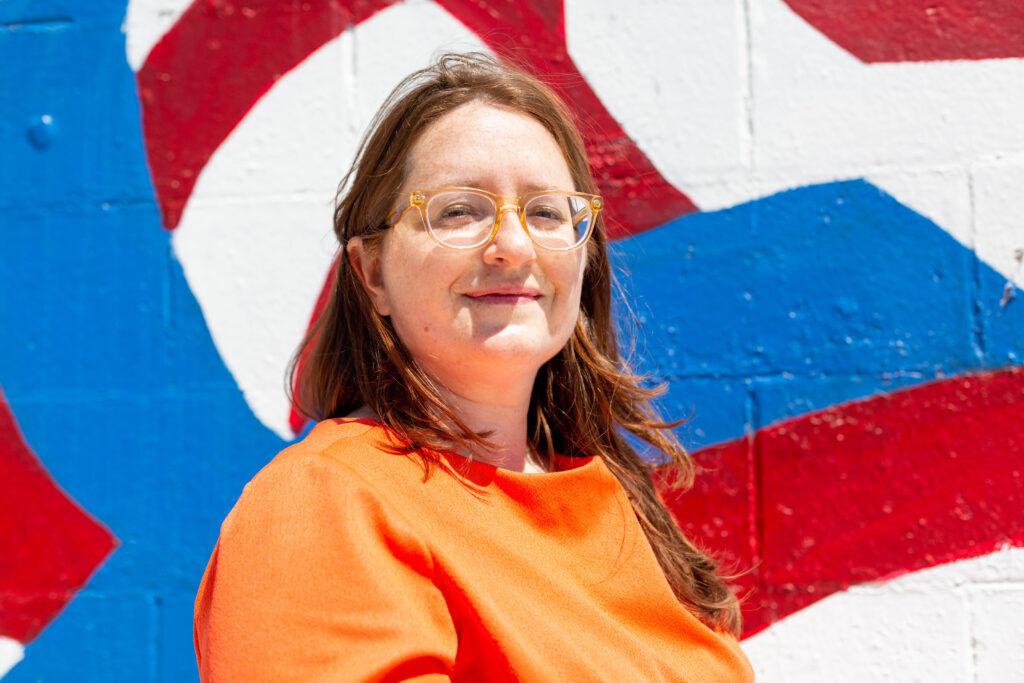
Lynn Blasey
Lynn Blasey A1: I have a BA in history with a focus on the Middle East from Michigan State University and studied abroad at the American University in Cairo, Egypt my senior year to focus on Arabic Language and regional history. Upon graduation, I spent two years volunteering with the Arab Resource Corps through AmeriCorps in the Education Department at the Arab American National Museum in Dearborn. In that position, I conducted museum tours and cultural competency workshops while taking a leadership role in youth programs, specifically the arts/crafts programs including SURA Arts Academy, which won the Coming Up Taller Award in 2008. Through SURA, I met my current boss in the Community Arts Partnerships Department at the College for Creative Studies.
For the last 13 years, I’ve managed the day-to-day logistics helping us serve 3-4,000 Detroit area students with free art & design classes each year. I’m also very involved in the arts community in Detroit and serve as vice-chair of the Hamtramck Arts & Culture Commission. In Hamtramck, I’ve also served on the Yemen Town Project, volunteered at festivals and events, participated in and organized neighborhood cleanups and am facilitating the re-planting and maintenance of the planter boxes along Joseph Campau. I’m running for Council as an extension of my existing community service in an effort to have a different level of impact in this city that I love.
A2: This is a complicated challenge that needs a multi-faceted solution. Residents have voted twice now to avoid raising taxes to cover these obligated expenses and I’ve been following some of the strategies that the city is currently using to raise the funds to better understand the scope of the challenge and where additional funds might come from.
This year, they launched a program that included the sale of city-owned vacant lots with requirements to develop them with residential structures within a year of approval of the project by City Council. The first sale was approved by Council at the last Council meeting and I’m hoping that they’ll be approving more soon. I’m working on getting better acquainted with the fine details of the existing budget to identify lost revenue sources and to see specifically how our existing revenue is being budgeted and spent. At this point, I still have more questions than answers and am actively working towards learning more in order to come up with better informed solutions.
A3: The city’s Master Plan has several guidelines set forth to help mitigate flooding and as a member of Council, I see it as my job to ensure that each decision we make aligns with the plan. Section 1.3 speaks to better utilizing vacant land for urban agriculture and 1.5 addresses improving the city’s tree canopy. Green spaces and strategic planting can help absorb rainwater and groundwater. As an example, I’m working to revitalize the planter boxes along Joseph Campau and once established, the plants will collect and absorb more water than used to run off the soil and into the sewers, adding to the problem.
Section 2.1 specifically addresses stormwater management, including increasing awareness of stormwater management practices, encouraging greenspaces and considering a fee for properties with mostly impervious surfaces. It is also the role of [the] City Council to communicate the efforts that are being made clearly and consistently to the public — the city is actively working to replace old sewers. On Council, I will continue to help residents navigate help when it is provided — this summer when FEMA and the SBA opened operations in City Hall, I helped spread the word and explained the services and processes to neighbors and residents that felt stuck and unheard.
We can also provide educational information for low cost ways for residents to help redirect rainwater away from foundations (french drains) and recommend various pumps and inside solutions to more quickly remove any water that does come in. I believe that it’s incredibly important for community members to feel heard and listened to them while providing attainable solutions when asked. These acts go a long way towards building an environment of mutual respect and trust between the general public and local government.
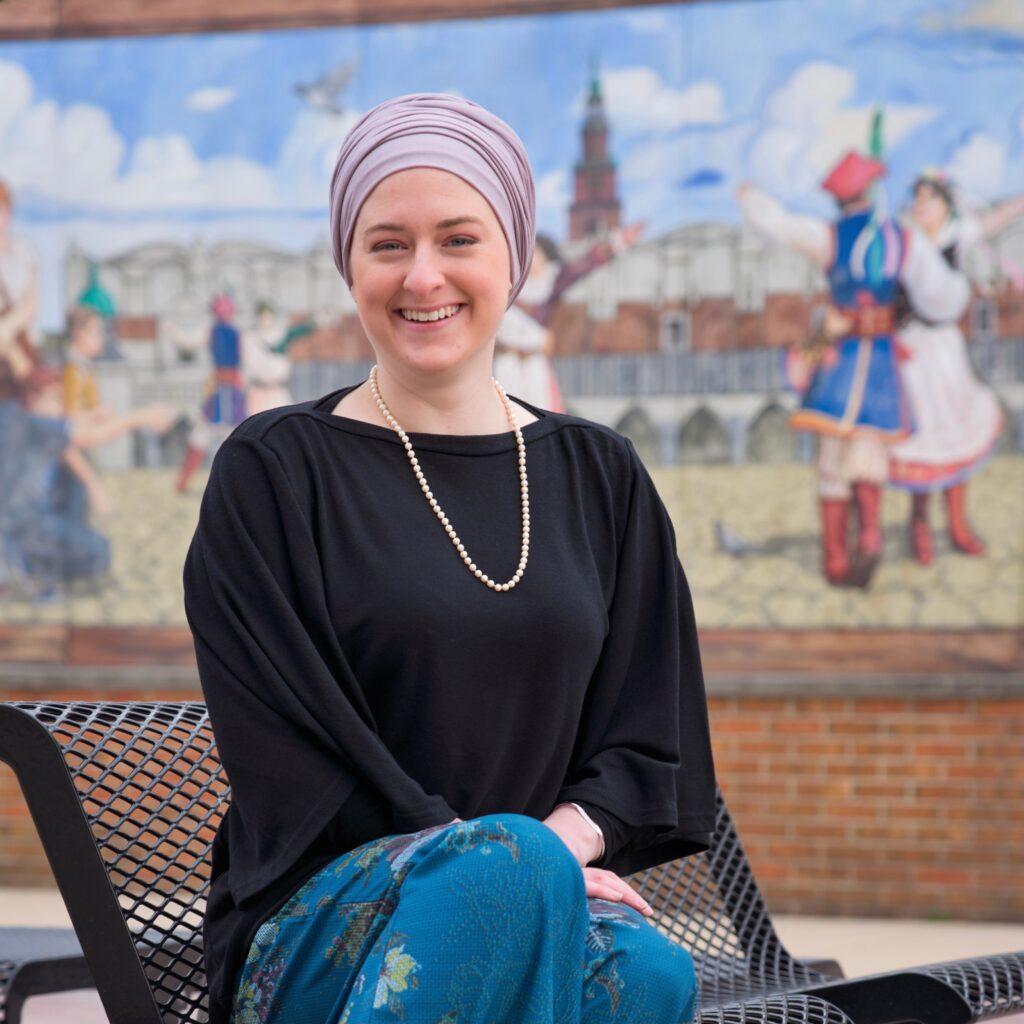
Amanda Jaczkowski
Amanda Jaczkowski A1: I am running for City Council as I want to bring out the best that Hamtramck has to offer and have the skills necessary to make progress as part of the six-person team. I love this city. I live in the city, play in the city and work hard to be a good citizen by participating in the city cleanups, keeping my yard clean and my sidewalk shoveled. I follow the City Council meetings closely and see the common issues on various Facebook groups. I graduated this past summer with a master’s in public administration from Wayne State University and this degree has provided me with many tools for understanding budgets, the creation, implementation and evaluation of policies and an understanding of how to best represent the people in this city.
A2: I believe it’s important to make it clear that no one person can single-handedly fix the budget issues. It is important for the City Council members, mayor and city administration to work together to resolve this. Since the proposed millages that were offered to meet the requirements of the retirement funds were voted down, other alternatives that can be looked into would be grants, cutting waste and reevaluation of existing programs. My goal is to listen to the citizens and try my best to keep and/or improve the services they find important while still meeting the obligations of the city.
A3: City Council should provide clear and accurate information about filing for government aid, in addition to publicizing and collecting data on the ongoing issue in order to assist in leveraging that funding. The City Council can and should work with other regional governments to demand repairs and upgrades of existing infrastructure, which is deteriorating across the region. We also need to look at increasing our tree canopy, reducing the amount of concrete poured on lawns and parking lots and look towards green infrastructure solutions that have been proven to reduce flooding from storms.
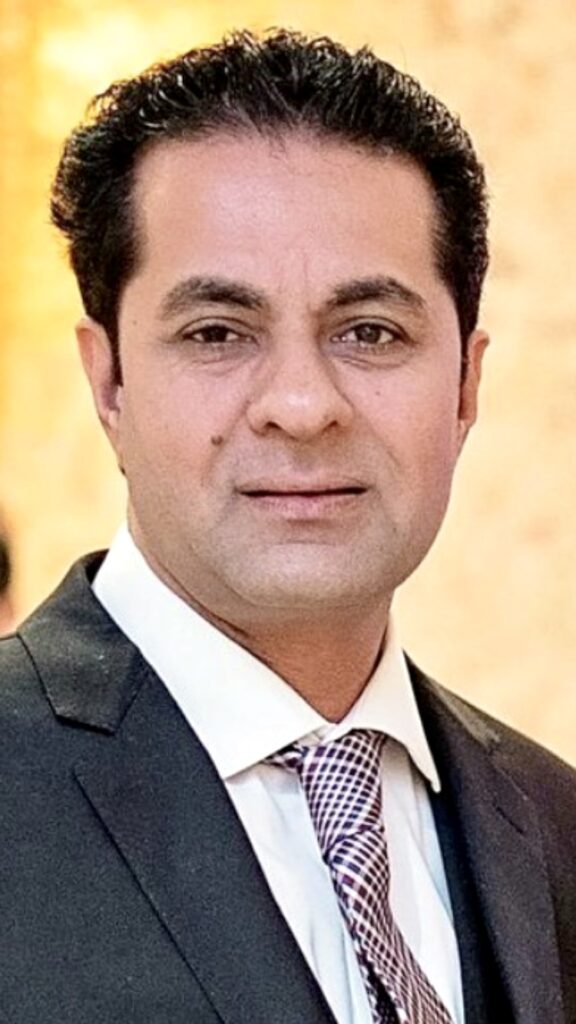
Muhith Mahmood
The Arab American News asked Muhith Mahmood these questions on the phone.
Muhith Mahmood A1: I’ve been living in Michigan since 2000. My work background is at MGM Grand Casino, where I work for the union and the executive board of Local 24. I came back home (Bangladesh) in 1996. When I came to Michigan, I went to community college to finish my associate degree and was a few credits away from finishing my bachelor’s. Back home I majored in Islamic history and geography. I am a family-oriented person. My wife and I have a newborn baby. Here, I finished my degree in general studies.
I’m a people person, I was always involved in many social organizations. I am the president of the Michigan Bangladeshi American Democratic Caucus, as well as the founder of the organization called Helping Hands. We collected money and sent the money to poor people and did blood drives in Hamtramck a few years ago.
A2: This issue is the biggest thing. We need to try to find a solution and whatever the needs, it needs to take time. It’s not all about me, it’s about the City Council to sit together to brainstorm. Also, we can talk to the community. You know it’s not always the people that are running the city that have the best ideas, sometimes the people that are in the community have some better ideas. So they can say this is how you should approach this issue and find a solution. So as of now, I’m not going to take any approach. I’m not going to make any commitment, but I think there’s always a solution for every problem. If we get a good team elected, we can find out a good solution and resolve this issue.
The Arab American News asked Mahmood to further clarify on his plans for carrying out the obligation for residents to pay the pensions.
“We need to talk to community members; that is the best way to go instead of increasing taxes forever,” he said. “There is a solution where we can collect money from our residents to resolve this issue. It could come out of this [community] negotiation that the city doesn’t have the money or lump sum of the money, but we can get it done. There are so many ways for this to happen and we can discuss them all.”
A3: This is a logical question and a strong question that is coming up in the city. This city has been suffering to find this plan for years; it’s not something that started recently. And unfortunately, nothing was getting done. And I said in past years, they’ve just started doing this work, little by little, and it could have been halfway done by now. Now, the Biden administration has talked about so many things related to infrastructure. My thing is, we should talk to the Biden administration and see if we can get some funds to utilize this money to resolve this issue or at least part of the issue. And this is perfect timing to do it because he has been planning to spend money for the country on infrastructure. I do have this connection. I spent time on the Governor Whitmer campaign and I worked with [State Rep.] Andy Levin and with the office of Congresswoman Brenda Lawrence. We could go and talk to them and try to find some solution and get some money from them to resolve this issue.
This is not only a Hamtramck issue, we are surrounded by Detroit city. We need to have a relationship with Detroit and both of us need to find out what needs to be done. And that’s not something that’s going to be overnight, it’s a long process.
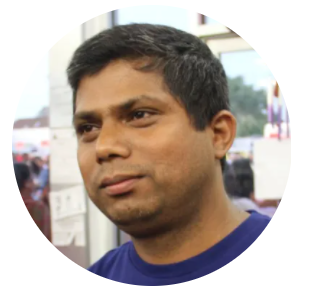
Abu A. Musa
The Arab American News asked Abu A. Musa these questions over the phone.
Abu A. Musa A1: I am running for City Council and I was on the City Council two times. One in 2014 and in 2018. I finished my schooling at Bangladesh National University, where I studied political science. I came to the U.S. to live first in New York and New Jersey in 1996. I worked as a substitute teacher. Then, I worked in sales at PC Regionals before I moved to Michigan. Later, I ran for City Council for a partial two terms. I’m a father of three kids, two girls and one boy. I worked as a small family business owner of Indian fashion. I now work in the city of Birmingham in another business.
I want to run because I like talking to people and I have a background in political theory in Bangladesh. If elected, I want to just work with the community.
A2: We need to be able to balance the budget. I haven’t made a decision yet. I would start by minimizing the gaps in the budget and how to improve the quality of life. This is a very pressing issue and I cannot give you an answer at this moment. I need to do my studies.
A3: We need to try to work with neighboring cities to treat this issue, collectively with everyone that has shared this experience. We had nearly 80 percent of Hamtramck underwater. This has happened three times this year. It is not easy. We need to try to work with the city, county and state. If we only focus on Hamtramck, I’m not sure we can overcome the next flood. This water system is very old. We need to fix or replace it. It’s a very expensive project and needs to be done to the best of our ability and to improve this budget. Maybe adjusting the millage for specifically the water issue.

Khalil A. Refai
Khalil A. Refai A1: I was raised in the city of Hamtramck/Detroit. I went to Hamtramck Public Schools. I went to college and studied computer engineering/ criminal justice. And then I went to the police academy at Schoolcraft Police Academy. I work for the Hamtramck Police Department as a reserve police officer, also as a chaplain for the Wayne County Sheriff. I’ve been active within the community of Hamtramck and Detroit. I am a founder of multiple organizations that are still around today, including the Yemeni American Leadership Association, Youth Center as part of the Islamic Center of Detroit and the Yemeni American Political Action Committee, which I’m the founder and president of.
I always wanted to run for City Council; I try not to miss any of the meetings. Seeing the City Council in Hamtramck, there’s no teamwork . If there’s no teamwork, you can’t make the dream work. The city is not going to look good if the city isn’t running the right way. I’ve been following the City Council since high school and it’s going downward.
We need to work as a team and you know, we may not like each other, but at least we in the Council meeting, we need to leave that behind. I think I can make a difference. There is a lot of new team members running for City Council. I have sat with most of them and I think we all have the same goals.
A2: Whenever I sit down with people from the city, most people don’t want to pay this anymore. Most of them work their entire lives in this city. They work hard for the city. The way I look at it, there are other ways to help. One, we can work with state representatives and officials were we can get grants, that way we can help out with our budget. There are ways we could get money. There is also code enforcement.
Refai was asked to elaborate on how to leverage code enforcement tactics as a strategy to pay the pension funds.
“We are taking about trying to bring revenue,” he said. “We are hiring for positions and we can’t even pay the pensions. There are people earning or have positions where, in reality, there’s no need for these positions. If we are able to cut these positions that there is no need for, then why not? And we need to stop adding positions in the biggest departments where we don’t even really have the money. We can make up positions for a person or favorite.
Also, with code enforcement, we can make so much money. Like, when I work for the Code Enforcement Department, there are a lot of violations. Because we have a lack of resources, if we don’t follow up on the violations, we are losing money. People have to follow the rules
A3: After multiple attempts, The Arab American News was unable to reach Refai to answer the last question concerning his plans to address the city’s issue with flooding.


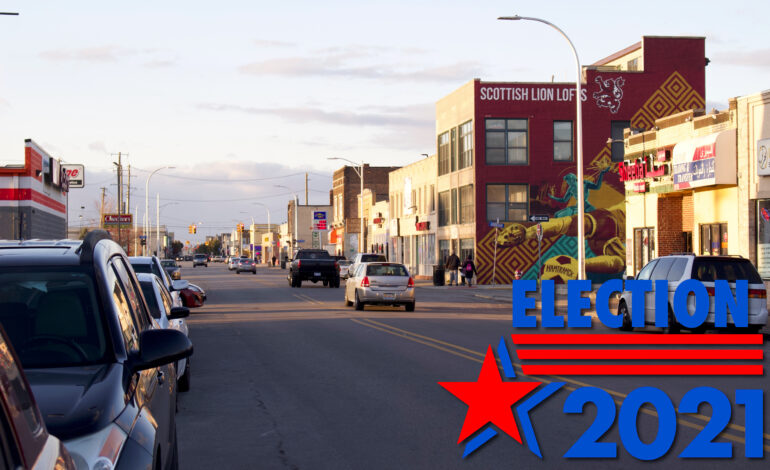
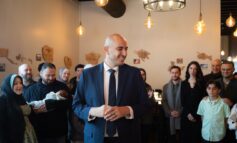

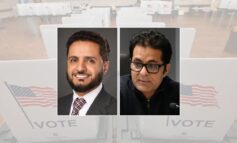
Leave a Reply